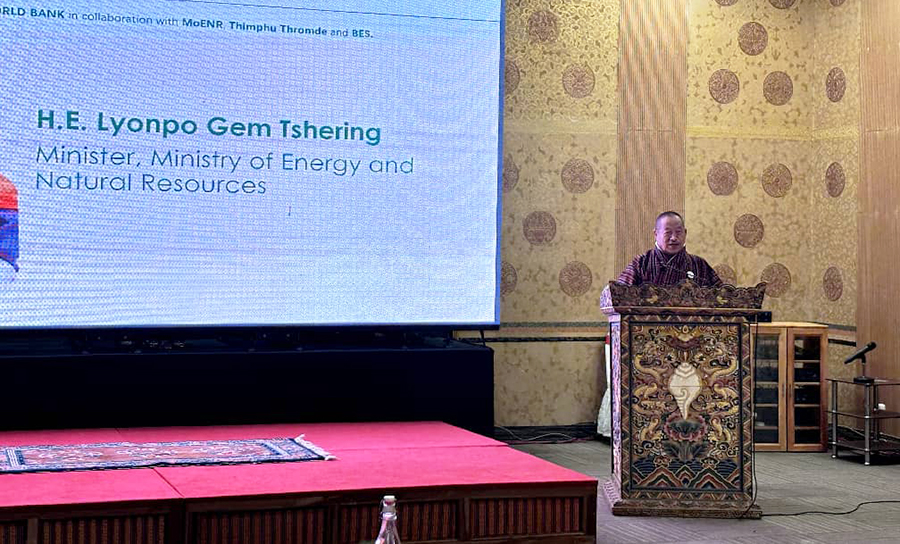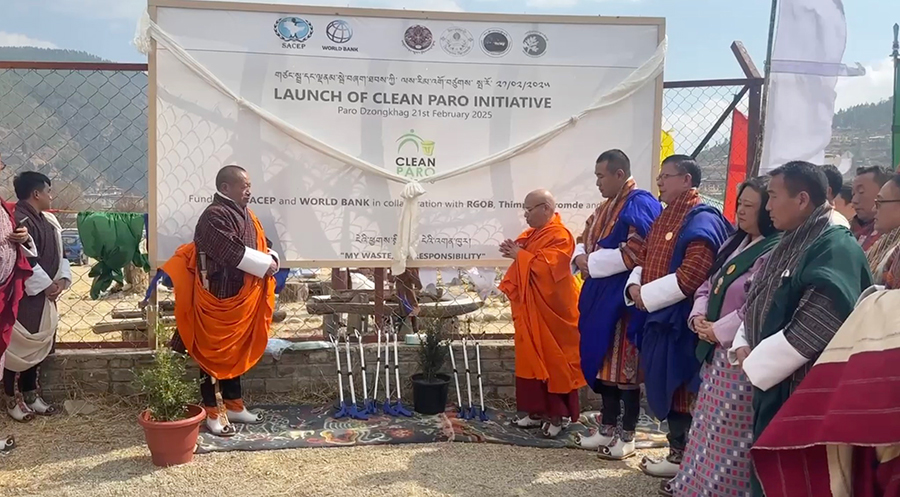 To tackle waste management in the country’s two urban centres, the ‘Clean Thimphu – Clean Paro’ initiative was launched coinciding with His Majesty The King’s birthday on 21st February. Led by the Department of Environment and Climate Change, the programme partners with Thimphu Thromde, Paro district, and the Bhutan Ecological Society. The initiative aims to improve waste systems and promote sustainable solutions. The South Asia Co-operative Environment Programme and the World Bank are funding the initiative.
To tackle waste management in the country’s two urban centres, the ‘Clean Thimphu – Clean Paro’ initiative was launched coinciding with His Majesty The King’s birthday on 21st February. Led by the Department of Environment and Climate Change, the programme partners with Thimphu Thromde, Paro district, and the Bhutan Ecological Society. The initiative aims to improve waste systems and promote sustainable solutions. The South Asia Co-operative Environment Programme and the World Bank are funding the initiative.
 The launch events were held separately in Thimphu and Paro. At the launch event in Thimphu, Energy and Natural Resources Minister Gem Tshering talked about the urgency of tackling Bhutan’s waste crisis.
The launch events were held separately in Thimphu and Paro. At the launch event in Thimphu, Energy and Natural Resources Minister Gem Tshering talked about the urgency of tackling Bhutan’s waste crisis.
 In Paro, the minister also announced plans to initiate a 40MW hydropower at Shana in Paro’s Tsento Gewog. He said that work will begin this year.
In Paro, the minister also announced plans to initiate a 40MW hydropower at Shana in Paro’s Tsento Gewog. He said that work will begin this year.
“We will not stop with these two dzongkhags. We want to go further. We also have a lot of entrepreneurs who are very much in favour of the initiative. So, we are all looking forward to it. And maybe one day, we will see that all the dzongkhags are clean,” said Gem Tshering, Energy and Natural Resource Minister.
Representatives from the involved organisations revealed that Bhutan generates about 176 metric tonnes of waste daily, with plastic waste accounting for around 33 per cent, raising concerns.
With a budget of around Nu 18.3 M from the World Bank, the initiative aims to strengthen waste collection and management systems, encourage citizen participation in waste reduction, and raise awareness through education and outreach campaigns.
Key activities under the initiative include the installation of CCTV cameras in identified locations to monitor waste disposal practices. The Royal Bhutan Police and local thromdes will oversee the surveillance, and individuals caught disposing of waste improperly will be fined. Additionally, the Bhutan Ecological Society will introduce an incinerator to safely dispose of medical waste, addressing a critical gap in the current system.
The initiative also includes the establishment of a material recovery facility to process and separate recyclable municipal solid waste using manual and mechanical methods. Developed in partnership with private entities, the facility will enhance recycling efforts and reduce landfill waste. As a part of the initiative, extensive awareness programs are also planned to educate citizens on waste reduction and sustainable practices.
“The project tries to bring in certain innovations in the way we do the clean-ups and sorting or practice the whole waste management system. The project would introduce technologies such as GPS systems, smart bins, the latest cleaning tools and even composting facilities,” said Norbu Wangchuk, Director General of the South Asia Co-operative Environment Programme.
If successful, the initiative is expected to be fully implemented by June. The initiative will serve as a model for similar programmes across the country.
Karma Samten Wangda
Edited by Sonam Pem









